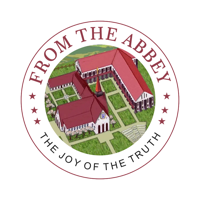
An Introduction to Human Virtues
The main point of Catholic spiritual growth is not what we do. Spiritual growth is dependent rather on who we become and what kind of relationships we form with God and with our neighbor. That’s why virtue is so important. The human virtues and the divine virtues both make goodness part of who we are. Grace heals the rift between us and God caused by Original Sin, and God’s presence in our souls makes conversion and holiness possible. Our choices to cooperate with grace or to resist it contribute to the creation of our character. By cooperating with grace, we can grow in virtue. By growing in virtue we can become good people capable of authentically loving God.
Building Character
Our character is the part of our personality that is developed by our own choices. We may not be able to control some parts of our personality, such as our temperament, but we are able to control the development or our character. Ultimately it is our character that defines who we are. For example, you may have a phlegmatic temperament – prone to bouts of bitterness and frustration. Your temperament and your emotional vitriol are not fully in your control. However, your free will gives you power over your emotion. The bouts of bitterness you experience may be turned to determination, for example, or the kind of sorrow Jesus teaches about in the Beatitudes or repentance for your sin and weakness. Alternatively, you may choose to completely overcome your emotional negativity. Such choices transform our temperament into character.
Wait a Second, What the Heck is a Virtue?
Whenever I teach about morality, I ask my audience if anyone can define virtue. Very rarely do I get an accurate answer. The truth is, we just don’t hear enough about virtue anymore. Instead we hear all about moral values.
Moral values are simply priorities. When someone asks you what your moral values are, they are asking what is important in your life. Moral values have replaced virtue in our moral discussions because of modernism. Modernism doesn’t believe that anyone can know truth. So it prefers to talk about “personal truth” and “tolerance” and “values.”
While moral values are certainly part of moral reasoning, they don’t have nearly the power to transform our lives that virtue has. Virtues are powerful tools that directly shape our character and help us combat sinful habits in our lives.
The main goal of character development is to (by the help of grace) grow in virtue and avoid vice. A virtue is a habit of choosing and doing what is good. A vice is a habit of choosing and doing what is evil, or of neglecting the good. The main difference between a virtue and a value is that while values are a matter of opinion and preference, virtues are tendencies toward objective goods. Objective goods are good for everyone, and they are good for us despite our personal perceptions and preferences.
Human Virtues and Divine Virtues
The virtues closely correspond to the moral law. As the moral law can be divided into natural law and divine law, so virtues can be divided into natural virtues and supernatural virtues. Natural virtues help us to live the natural moral law by making us more human. Supernatural virtues help us to live out the divine law by aiding our relationship with God.
On the natural level, virtue can be understood as a quality that makes something true to its nature. The virtue of a knife is sharpness because the purpose of a knife is to cut. Human beings are much more complex than knives, so there are a multitude of virtues. Since the defining faculties of human nature are the intellect, the will and our physical bodies, most human virtues center on the perfection of these faculties. Physical virtues bring health to our bodies. Moral virtues strengthen and guide our will to choose what is authentically good and beautiful. Intellectual virtues strengthen the intellect and orient us toward truth.
How Do We Grow in Virtue?
So, how do we attain virtue? Natural habits are attained through the repetition of an action. To strengthen a habit, you must repeat the act with increasing intensity. Acquired habits eventually die if the action is not repeated and the habit is neglected.
Virtues can also be infused into the soul by God. Grace infuses into the human soul the theological virtues – faith, hope and love. The Holy Spirit can infuse any virtue within us, especially when they coincide with a Gift of the Holy Spirit. However, even these infused virtues must be exercised in order to be strengthened. They cannot completely die, even when they are neglected. However, they can atrophy.

Human Virtues provide a firm foundation for our character.
Virtues Lead to True Freedom
As we practice virtue we use our daily choice to affect who we are becoming. We talk about habits becoming “second nature” to us, and this is an accurate description. Our virtues become an integral part of our personality. Especially when we cooperate with God to strengthen our infused virtues, we become co-creators with God, creating our personality with the help of His grace.
This is also the true meaning of freedom and of sovereignty. Our choices have long and lasting consequences, even affecting who we become. We choose whether or not to grow in virtue, and we decide which virtues we will develop. Finally, who we become – especially whether or not we become people of love – affects our eternal destiny. Only virtuous people are truly able to love. So spend some time thinking about what human virtues and what supernatural virtues you need to develop to become the person God created you to be.
What To Do Next
The key to changing any behavior – especially establishing and growing in virtue – is to systematize your behavior into habit formation. From the Abbey can teach you how to build the key spiritual habits that make up a “lay rule of life.” I want to invite you to take advantage of the opportunity below to dig more deeply into your spiritual life with me. Learn your faith with educational articles and videos. Live your faith with our online spirituality program that teaches these spiritual virtues. Join us today!
Brought to you by Jeffrey S. Arrowood at From the Abbey, dedicated to helping you rediscover the JOY of learning and living your faith so you can grow in intimacy with God.


[…] our quest for spiritual growth, we seek to become the best that we can be by growing in virtue, but our virtue must also moves us out of ourselves and unite us to God and neighbor in selfless […]
[…] The theological virtues empower us to have a relationship with God. But they do this by building on human nature with the supernatural gifts of grace. So far we have explored human aspects of love. Eros, storge, and philios are human forms of love. Grace strengthens these types of love. But this last form of love – agape – is possible only by the grace of charity. […]